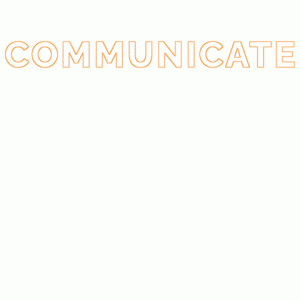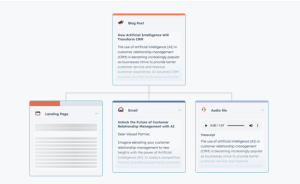
Is project management different in an advertising agency? The short answer is a resounding “no.” While traditional project management is generally associated with more technical industries—IT, engineering, architecture, and so forth—the basic tenets of good, old-fashioned project management extend themselves across industries.
Let’s break it down. No matter the industry, a successful project loosely follows the same basic principles and guidelines:
- Project structure
- Definition phase
- Clear, concise goals
- Transparency regarding project status
- Risk recognition and mitigation
- Acknowledgment of project disturbances
- Defined responsibility of team members
No matter what you’re delivering, project success is the ultimate end goal for project managers, right? That said, there are certain nuances in the creative industry that are worth mentioning—especially when you consider how different agencies are from one another. After all, part of what makes agencies special is how they approach the creation process in the first place.
In the past, agencies could be separated into two primary categories: creative-driven and account-driven. While the former generally led with ideas, the latter operated on a more results-driven rationale. Sound limiting? It is. Thus, the times—they are a-changin’.
The Evolution of Creative
Much like the creative world, project management has evolved. Due in part to an increasingly progressive workforce and rapid technological innovation, ad agency project management is not as black and white these days. Agencies are now classified by categories as far-reaching as data, digital, and interactive. While this disintegration has certainly diversified project management, it’s also led to a variety in agency workflows.
In other words, this fragmentation has demanded a reinvestigation of traditional agency roles—and a redefining of creative project management. In this regard, the creative world has created a demand for its own breed of project management.
In the world of modern advertising, creative is closely linked with production. Simply put, cross-functional project teams are becoming increasingly popular. As we’ve mentioned before, it’s not uncommon for teams to blend UX and design, SEO and CRM, and designer and developer roles. These days, a project manager may be a part-time account manager, stand-in production manager, or one-time finance manager.
From an execution standpoint, this model is directly at odds with tradition. However, the basic concept of project management still applies. Managing human resources and intangible metrics has always required a nuanced approach. From encouraging natural collaboration to defining expectations, the underlying ideas of project management are still the same.
So What’s Next?
For many agencies, it’s simply a broadening of the term—and an adoption of more modernized project management. At its core, modern project management largely caters to unique projects rather than continual-effort projects. Oftentimes, projects are short-term and may account for one-off efforts (such as building a website or rebranding a software company).
As agencies become increasingly more nimble, now is the time, perhaps more than ever, that a strong project management foundation is paramount to success. Even if your agency dabbles primarily in digital, projects still evolve at rapid rates. Integrated teams demand integrated strategies. And knowing how to innovate and stay on top of technology is crucial in 2017.
While creative project management is evolving, it’s just a sign of the times. Agencies have always been anything but typical when it comes to workflow and processes. Rather than rely solely on traditional techniques required by more quantitative industries, ad agency project management requires adaptive, out-of-the-box thinking.
Business & Finance Articles on Business 2 Community(69)
Report Post







